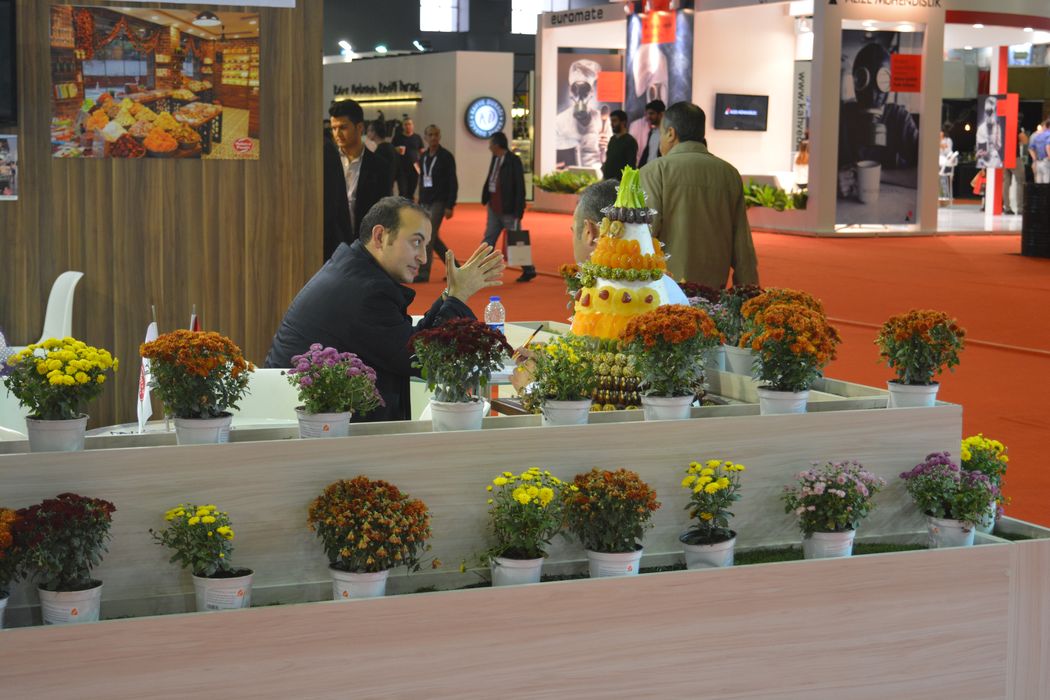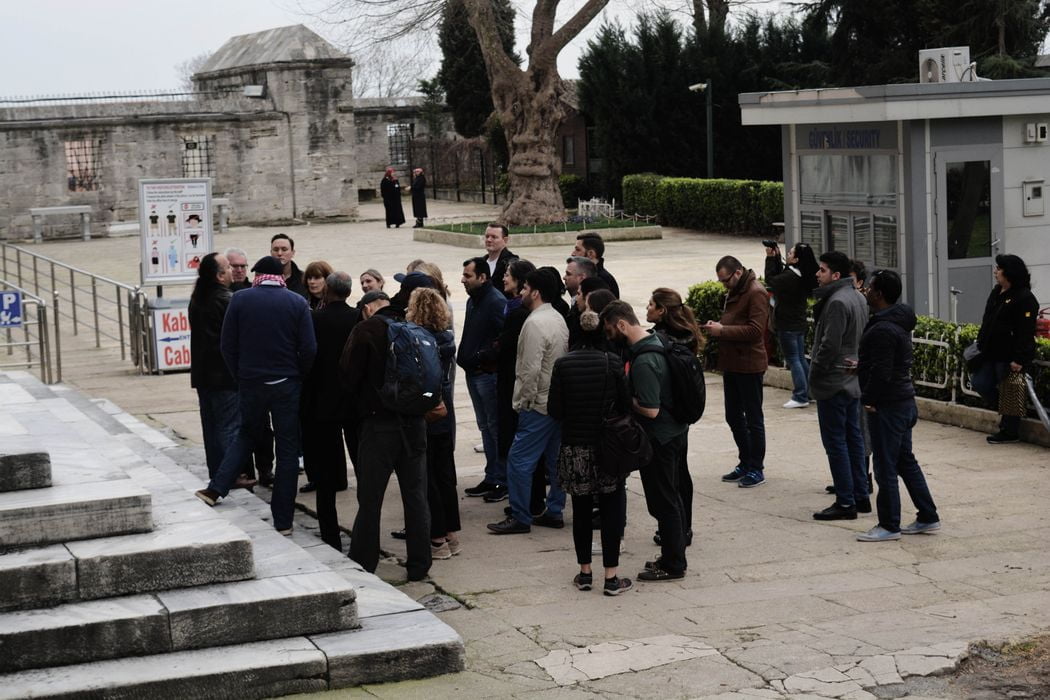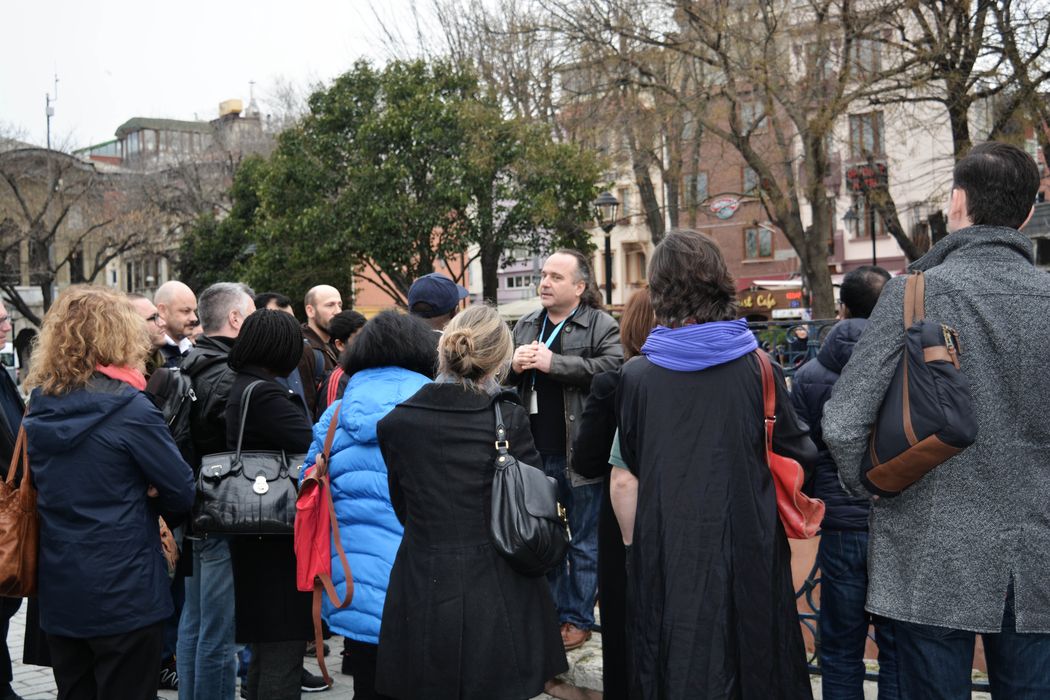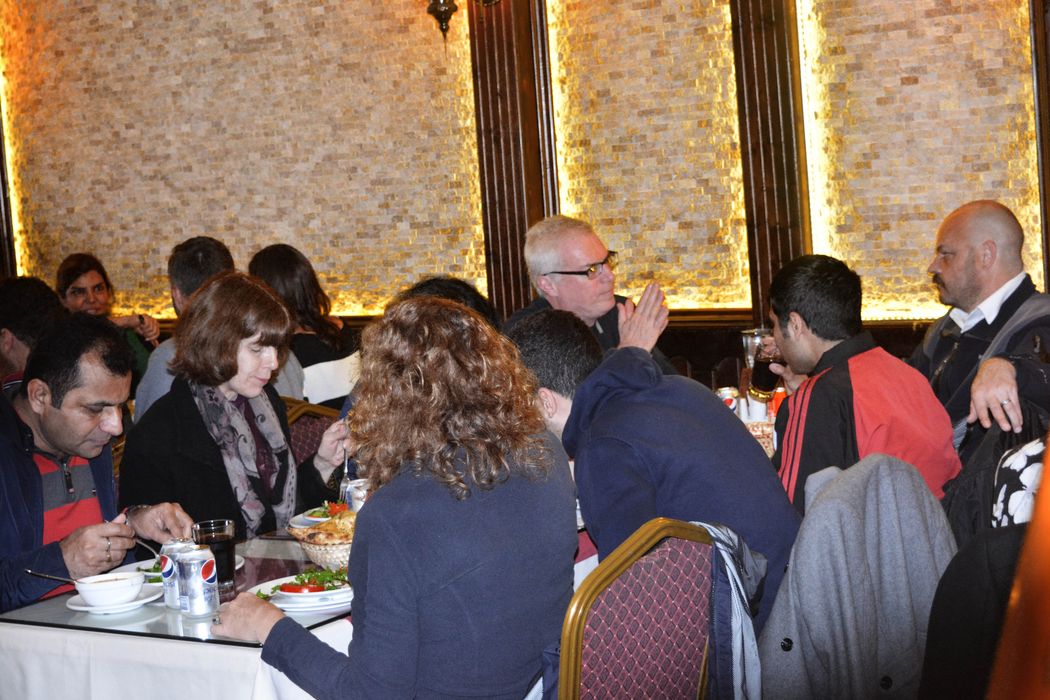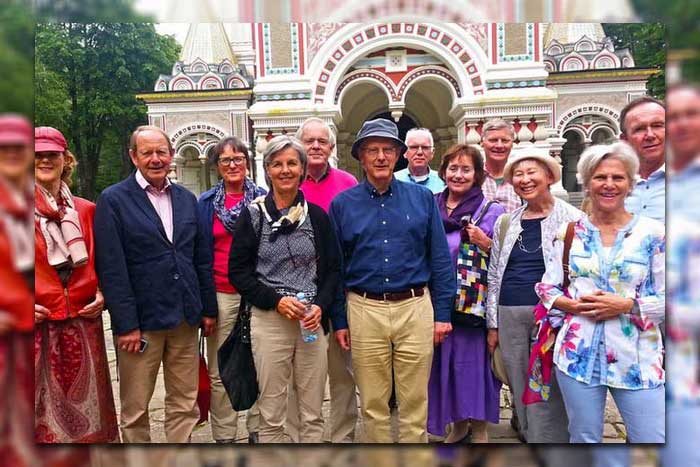It was taken first to the qadi’s house, and the qadi sent it on with his men to Ibn al-Faqih’s house. Ibn al-Faqih came hurrying out of his house barefooted, and entered my room saying, “Stand up; here comes the sultan’s stuff and gift to you.” So I stood up thinking–since he had called it “stuff”–that it consisted of robes of honour and money, and lo!, it was three cakes of bread, and a piece of beef fried in native oil, and a calabash of sour curds. When I saw this I burst out laughing, and thought it a most amazing thing that they could be so foolish and make so much of such a paltry matter.
The court ceremonial of king Sulayman of Mali
On certain days the sultan holds audiences in the palace yard, where there is a platform under a tree, with three steps; this they call the “pempi.” It is carpeted with silk and has cushions placed on it. [Over it] is raised the umbrella, which is a sort of pavilion made of silk, surmounted by a bird in gold, about the size of a falcon. The sultan comes out of a door in a corner of the palace, carrying a bow in his hand and a quiver on his back. On his head he has a golden skull-cap, bound with a gold band which has narrow ends shaped like knives, more than a span in length.
His usual dress is a velvety red tunic, made of the European fabrics called “mutanfas.” The sultan is preceded by his musicians, who carry gold and silver guimbris [two-stringed guitars], and behind him come three hundred armed slaves. He walks in a leisurely fashion, affecting a very slow movement, and even stops from time to time.
On reaching the pempi he stops and looks round the assembly, then ascends it in the sedate manner of a preacher ascending a mosque-pulpit. As he takes his seat the drums, trumpets, and bugles are sounded. Three slaves go out at a run to summon the sovereign’s deputy and the military commanders, who enter and sit down. Two saddled and bridled horses are brought, along with two goats, which they hold to serve as a protection against the evil eye. Dugha stands at the gate and the rest of the people remain in the street, under the trees.
Read More about Ibn Battuta part 41
